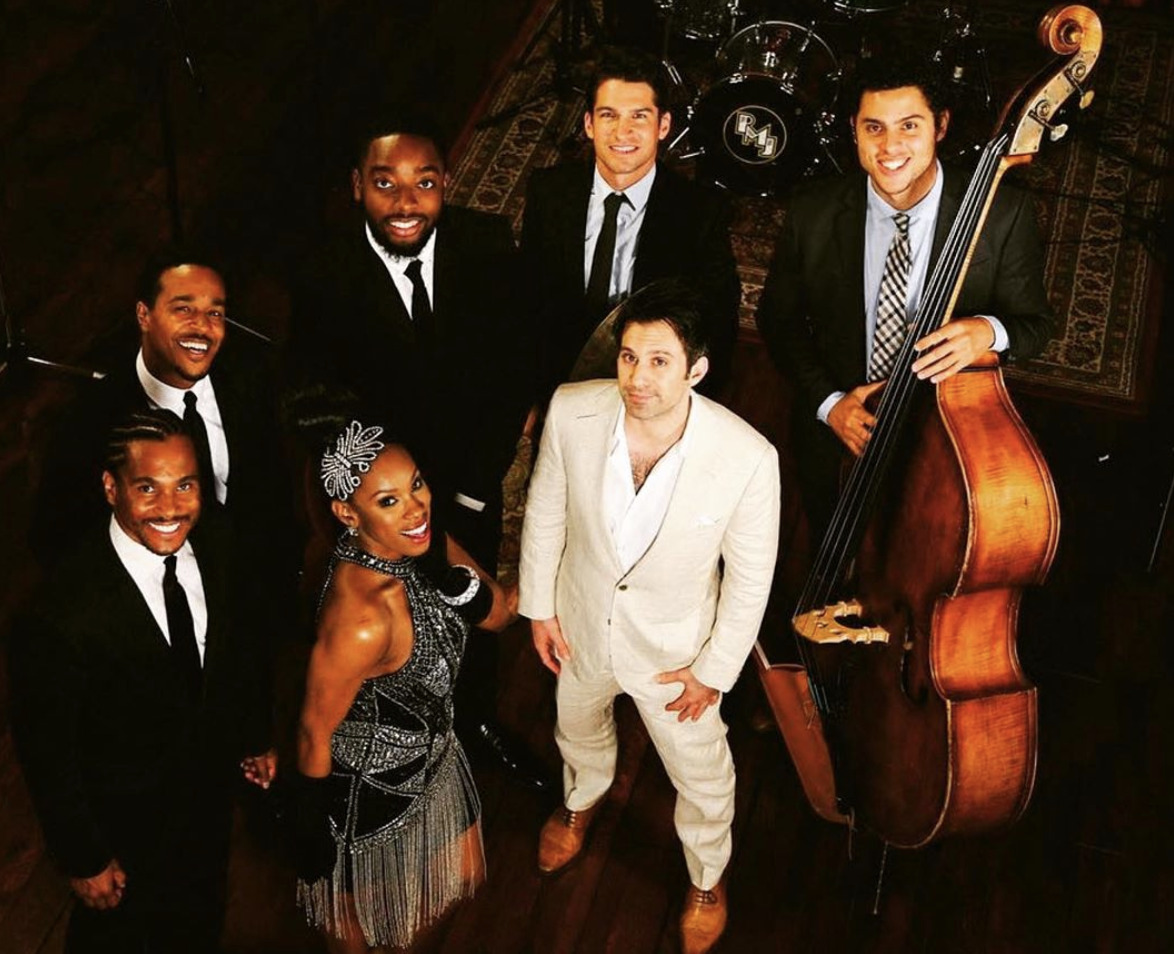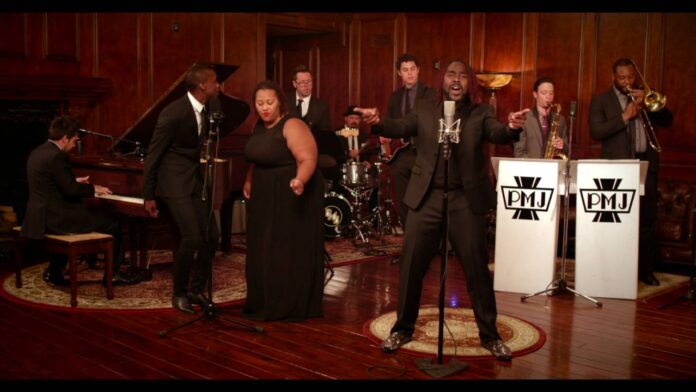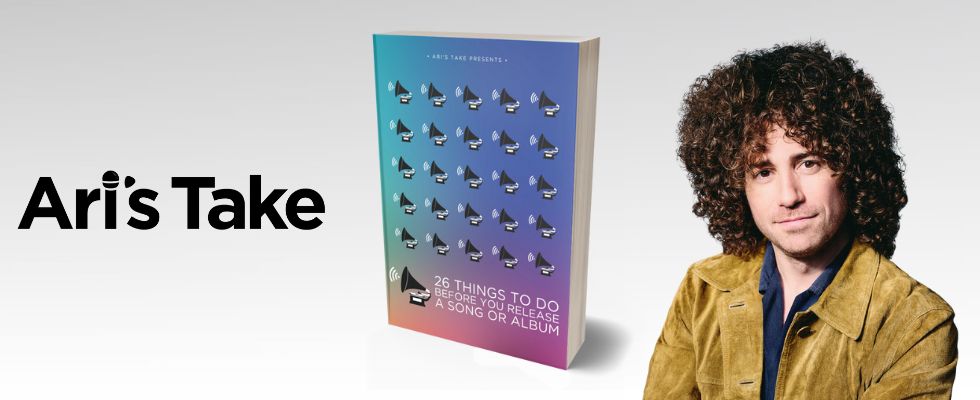On Thursday, July 16th, in a brave act of solidarity and dissent against their employer, black musicians penned an open letter to the founder and leader of Postmodern Jukebox, Scott Bradlee.
Many posted this letter and subsequent demands to social media and the @blackatpmj Instagram Account was launched. Among those who posted the letter include Mykal Kilgore, Maiya Sykes, Jonathan Richards, Chip Thomas, Anissa Lee, Lee Howard, Drue Davis, Ashley Stroud, PJ Floyd, and David Simmons, Jr. Other PMJ performers who posted the letter in solidarity include Kenton Chen, Robyn Adele Anderson, and Mario Jose.
It read:
Dear Scott Bradlee and Postmodern Jukebox,
The last couple of months have been challenging for many of us, as our country reckons with the many forms of racism and structural inequities within our society. In this moment, we feel the responsibility lies with each and every one of us to contribute to this growing movement calling for change. Both on an individual level and collectively, we must hold ourselves and our institutions accountable. Businesses from Starbucks to the NFL are taking on the challenge of addressing issues surrounding race within their organization and beyond. We are asking PMJ to do the same.
PMJ’s rise to a multimillion-dollar international corporation is in large part due to music created, arranged, performed and popularized by Black artists. Jazz and tap dance are forms of Black art. Furthermore, PMJ features many Black artists and has profited greatly from their talents. With this in mind, we feel Scott and Management have a responsibility to use the PMJ platform to support us in the ways we say we need to be supported.
Over the years, there has been constant racial disparity within Postmodern Jukebox.
There has been a noticeable lack of diverse representation on videos, posters, marketing campaigns, socials, advertisements, etc. from PMJ. A Black performer was asked to remove a “Black Lives Matter” pin during a tour. A Black performer was demoted or given significantly less work after the entire cast refused to perform in Gainesville, FL, near a white supremacy rally. A Black performer was not taken seriously when they reported an incident of sexual assault and harassment. These are but a few of many instances of racial disparity, aggression and discrimination within PMJ.
While we recognize PMJ does cast many people of color, these members have often been given excess work (with no additional pay), less promotion, less video inclusion and overall less of the general exposure to PMJ fans than white cast members have received through the years. There is a significant lack of people of color – and women – in leadership positions at PMJ, including agents, management, tour staff, music directors/band leaders and so forth. This has to change. We are willing to work with Scott to facilitate a more equal and fair representation of people of color and women in these positions of power within the organization.
Now is the time for Postmodern Jukebox to be a champion of the Black Lives Matter movement.
This is not a political statement. It is a human-rights statement. We need PMJ to use all of its public facing platforms to support us. Ultimately, we think that this will make the organization stronger.
Recently we initiated a Zoom call with Scott to address these issues and to share some of our experiences while working with Postmodern Jukebox. Scott responded to our outreach and agreed to virtually meet with us. He listened to each of our experiences without interruption. When it was his turn to speak, he went down the list of our shared experiences, and proceeded to validate or invalidate them based on his own thoughts. He chastised and belittled one of us for sharing their experience publicly.
**
+Who in Music is Supporting the Black Community Right Now
They also sent a list of action items they asked Scott Bradlee to take:
- Addressing and Acknowledging the Past
– A public acknowledgement of the ways in which PMJ has failed in the past to promote racial equity, and has allowed its Black members to experience harm. This can be broad and not specific to each incident.
– Creative credit and retroactive pay for previously unpaid creative work. - Changing the Present Conditions
– Creating a transparent pay structure to ensure there’s no room for discriminatory pay.
– Creating “tracks” for each tour cast to ensure there is both equitable workload and representation
– Creating a pathway for reporting any racial or gender-based incidents of discrimination or harm to Black or POC member of management. This pathway should have built in support (paper trails, signed commitments) to ensure there is no professional or financial retribution for speaking out.
– Holding the white men in positions of authority accountable for their actions (including but not limited to their actions towards Black cast members) instead of giving them impunity time after time - Planning for the Future
– Beginning the process of hiring and promoting, especially from within, Black creatives to hold positions of power within the PMJ ecosystem. This includes tour managers, musical directors, and upper management
– Publicizing the letter, the content and results of the Zoom conversation, and what PMJ has agreed to (i.e. this outline). This will allow all the public to hold all parties accountable.
Scott responded to their letter privately and the coalition publicly stated:
“We consider Scott’s response to be a rejection of our very clear outline and an attempt to silence and control us. We do not accept this.”
–Black Members of Postmodern Jukebox #BlackatPMJ
It’s important to note that this letter was sent nearly a month after PMJ posted a statement which read, in part:
“Postmodern Jukebox has featured dozens of phenomenally talented Black performers… It’s important to acknowledge that the roots of American popular music comes from Black Americans, and their Lives, Voices, and Dignity matters. When they hurt, we hurt, and we stand with our Black cast members in an effort to envision a world free from hate, discrimination, and injustice.”
View this post on Instagram
Postmodern Jukebox started as a YouTube project by pianist Scott Bradlee in 2011.
You have probably seen their videos even if you’re not familiar with their name. They do early 20th century jazz arrangements of pop songs, oftentimes in costume and sometimes with props and tap dancers. They have amassed over 1 billion YouTube views with nearly 5 million subscribers, and regularly tour the world, oftentimes with multiple ensembles out at the same time touring various parts of the world.
+HUGE! Musicians (and Freelancers) Can Now Get PPP Loans (With Forgiveness)
Scott Bradlee brilliantly created an entity that is not reliant on any one star. It is all about the experience. Most tours, Scott doesn’t even join.
Many of my friends in LA are part of Postmodern Jukebox. It’s like The Voice or American Idol. If you live in LA, and have a great voice and perform in the scene regularly, you’ll most likely get swiped by The Voice, American Idol (or whatever latest singing contest TV show is out) and Postmodern Jukebox. In fact, some of PMJ’s biggest breakouts are former contestants like Haley Reinhart and Casey Abrams.
This all started with a post on June 22nd by singer Mykal Kilgore:
“Since Starbucks is letting their employees wear BLM gear do you think maybe Postmodern Jukebox will do the same?! I hope they’ve come around since when they tried to fire me for wearing my BLM pin.”
He continued:
“In October 2016 I was on tour with @pmjofficial when I got an email that told me that I was no longer allowed to wear my BLM on stage. I then received a text message from a fellow cast member saying that they were trying to hire him to replace me.”
This essentially opened the floodgates.
Karen Marie went live on Instagram explaining that she co-arranged “Creep” with Scott (currently the videos have nearly 85 million views) but was not credited or compensated for it.
Her Instagram Live (below) was immediately “shadow banned” by Instagram limiting its reach (most likely because people flagged it as inappropriate).
After I watched her video, I went to check on who was credited for arranging “Creep.” On YouTube it listed “Arrangement by Scott Bradlee.”
In Scott’s book Outside the Jukebox he writes:
“I met Karen Marie…she suggested we add ‘Creep’ to the set list. We reimagined the song in 6/8 time, lending it the feel of Etta James’ ‘At Last.’ Karen – ever the comedian – ended the demo by quoting a line from TLC’s very different hit song also named ‘Creep.’ Haley Reinhart fell in love with the arrangement and asked if she could perform it live with us. The reaction was immediate; it was the most talked-about performance of the night.”
For such a powerful arrangement you’d think Karen would be credited and compensated for it.
According to her public statements, she has not been credited the past 6 years until this past week (after her Instagram Live post).
And has still not been properly compensated.
As of today, the “Creep” videos have been updated to list “Arrangement by Scott Bradlee with Karen Marie.”
Scott (or his management) did not respond to multiple requests for comment.
“There were times in the last 7 years that I was financially up shit’s creek with no word from him. He came and asked me to sing for him for an appearance he had. Want to know how much money I made for that appearance? $0. I have yet to see any credit or any profit for what I’ve done.” – Karen Marie, singer
I spoke with a few cast members to get the rundown on how the PMJ financial model works.
Basically, the musicians (non-lead singers) get paid a flat amount to record a song and video. Typically starting around $150/song. However, I spoke with a horn player who said he started at only $100/song.
Sometimes the song would take a couple hours to film and record, other times it would take six hours. Same $150 rate.
“You have a multi millionaire who is banking off of black music and is making statements on behalf of black artists, but you didn’t do right by the black person that showed up the first time.”
– Karen Marie, singer
Lead singers get a different deal. They typically get a percentage of royalties. A singer shared one contract from a duet he did with PMJ which offered him, the singer, just 7.5% of royalties from just iTunes (this contract was pre-Apple Music) and Spotify (not ad revenue from YouTube, not CD sales, not other DSPs, not sync).
Oh AND there is exclusivity in the contract. Meaning, this singer is not allowed to record this same song for 5 years.
+This Music Company Doesn’t Care About Black Lives
I reached out to Postmodern Jukebox’s management, press team and Scott directly for a comment, but did not receive one.
I will update this if they get back to me.
“The thing that’s been frustrating – it’s the organization as a whole. Yes a lot of it is Scott, most of it is Scott. There’s a lot of complacency – people who are afraid to speak up because they see this as their only line of work. Because it has garnered them a lot of recognition sometimes later in their lives. Therefore keeps them quiet. “ – Anonymous PMJ touring cast member
I spoke with bassist Jonathan Richards at length. Jonathan has recorded over 50 videos, amassing over 170 million views over the course of 3 years. He was paid just $150/video (later he said he got a raise of $30/video when he pleaded for more money).
“The majority of the musicians are pretty frustrated. But no one wanted to speak out. We all kind of kept going with it. The longer I played with them the more I realized this is really fucked up.” – Jonathan Richards, bassist
He recalled an instance where after they had finished recording one song, Scott’s assistant came out and asked Jonathan to stay to do another song for an additional $50.
When Jonathan explained his deal was $180/song, Scott (via his assistant) refused to pay it, explaining that the first recording went quicker than they had expected. Jonathan noted that he didn’t get paid more when a recording went longer than expected.
“I’m standing in his mansion and he’s renovating his pool,”
-Jonathan Richards, bassist.

I asked Jonathan what he thought would be a fair payment for the work. He said $400-500/song plus a little on the backend.
“I just needed gigs, I was getting through grad school. I went with it longer than I should have.” – Jonathan Richards, bassist
I spoke with singer Mykal Kilgore and asked him the same thing and he said that although this model is common, he doesn’t believe it’s fair.
Being asked to remove his Black Lives Matter pin on a tour, he posed a rhetorical question to Scott:
“How can you be an artist in a multi-racial, multi-ethnic, multi-gender situation and it not be political? How do you tear down white supremacy? how do you build up the black community?”
–Mykal Kilgore, singer
Another singer, Maiya Sykes, posted the letter to her Instagram with a follow up video:
“I’m not posting what I posted to burn the house down, to insult Scott, to insult management or to insinuate that this isn’t a fixable problem. But I do know that this is an issue. I also have every faith that bringing this issue to light is not going to destroy Postmodern Jukebox or be a badge of dishonor to Scott. I have every intention and every belief that Scott wants to make this better and that everyone in Postmodern Jukebox wants to make this better. So we are going to make this better. If that means that they are angry at me right now I totally get that but I come in love and I know that this is a fixable problem. Let’s clean up PMJ” – Maiya Sykes, singer
Another PMJ touring performer gave a bit of insight into how the ‘casting’ of the ensemble works:
“If you pay attention to every single tour, they have a bunch of skinny white girls, they allow for 1 not skinny girl, 1 white guy, 1 person of color. It doesn’t work for more people of color. At most there are 2 people of color in the band. Strategically placed that way. Because of the audience. They don’t appreciate that. I know for me, I was asked multiple times to tone down the sexuality of my performances. In the same show that you had a woman performing Burlesque pulling a man on stage and sitting on his lap. What is appropriate or not appropriate?” – Anonymous PMJ touring cast member
“The only people who are allowed to be full human beings are the lead white women in front.”
– Kenton Chen, singer
What’s clear in all of this is that Postmodern Jukebox performers have not felt supported or taken care of. They have felt taken advantage of, demeaned, belittled and undermined.
The payment structure of Postmodern Jukebox is flat out unethical.
Scott Bradlee got rich on the backs of his musicians – keeping them paid just barely enough so they’d return, but not nearly enough for what an enterprise like this could afford to adequately support its musicians.
+9 Things To Do Now That Your Gigs Are Cancelled Because of Coronavirus
Do I think he’s a bad guy? No. I think he built an impressive entity and is a true visionary (and very talented pianist). But his deals are unfair and he needs to be held accountable.
In my opinion, the lead singer should receive a hell of a lot more than 7.5% of royalties for the song they sing lead on and it should come from EVERY master revenue stream. If ANY money is made from that master (sync licenses, YouTube ad revenue, CD sales, etc), the singer should get paid for it.
This info needs to be 100% transparent.
These books should be publicly available to everyone who performed on the song. They should be able to log in to a database and view these numbers (like how DistroKid, Stem or Soundrop work payment splitting).
And the musicians should enjoy a much larger up-front fee plus a bit of the backend.
What I would deem fair would be 20% reserved for the lead singer of the song, 20% split amongst all of the players on the song (in addition to a sizable session fee), and 60% for Postmodern Jukebox/Scott Bradlee.
+9 Things Singer/Songwriters Need To Know About Hiring Freelance Musicians
It’s time to reimagine how session musicians are compensated.
It has never been fair. Session musicians rarely ever earn a backend royalty from the master. It’s time they do. Especially in an organization like this which so heavily depends on the personalities and talents of the musicians for their brand.
And it’s time to listen to, support and amplify black musicians’ voices. Not just on the track, but in the contract.

















